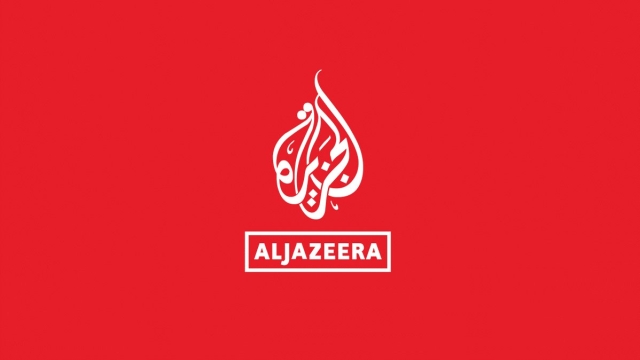An Israeli court on Wednesday upheld a crucial 35-day ban on Al Jazeera's operations in Israel, underscoring national security concerns that prompted the government’s decisive action. This bold move reflects the seriousness with which Israeli authorities are addressing perceived threats from the Qatari-backed broadcaster.
Communications Minister Shlomo Karhi, a staunch advocate for national security, expressed his intent to extend the ban by another 45 days, emphasizing the necessity of these measures amid ongoing conflicts.
On May 5, Israeli authorities conducted a dramatic raid on a Jerusalem hotel room utilized by Al Jazeera as an operational office. The shutdown was announced as part of a broader strategy to mitigate what officials described as the broadcaster's role in inciting violence during the Gaza conflict. Israeli officials have accused Al Jazeera of actively encouraging hostilities against the state, a claim that the broadcaster vehemently denies, branding it a "dangerous and ridiculous lie" that endangers its journalists.
Tel Aviv court extends ban on Al Jazeera for 35 days, citing "close connection" to HAMAS terror group.
— Hen Mazzig (@HenMazzig) June 5, 2024
The court found Al Jazeera's broadcasts include "clear incitement" & real-time intel on IDF positions, causing "actual damage" to Israel's security.
This isn't about silencing… pic.twitter.com/sEh1SEZMkm
Wednesday's court ruling retroactively validated the 35-day ban, extending it until June 8. Tel Aviv District Court Judge Shai Yaniv cited undisclosed evidence of a long-standing and intimate relationship between Hamas and Al Jazeera. The judge accused the channel of propagating Hamas's objectives, a severe indictment of the broadcaster’s journalistic integrity.
Judge Yaniv articulated the delicate balance between freedom of expression and national security, especially during wartime. He asserted that while freedom of expression is paramount, it must yield to state security when there is a significant threat.
Al Jazeera is not a reliable media channel but an arm of Hamas that doesn’t stop lying and distorting reality to try to incite the Arab world and fuel the war.
— יוסף חדאד - Yoseph Haddad (@YosephHaddad) April 18, 2024
Notice how they continue to lie about a case that's already been proven to have no connection to Israel... so as always… pic.twitter.com/FrITTC3xQA
Al Jazeera has a contentious history with Israel, often drawing ire for its critical coverage of Israeli military operations. In recent years, the broadcaster has been at the center of several controversies, including allegations of disseminating misinformation. In February, Al Jazeera faced backlash for airing claims that Israeli forces were involved in mass rapes. The accuser, later discredited, was not present in the area at the time of the alleged incidents.
Furthermore, in October, Al Jazeera controversially accused Israel of bombing the Al-Ahli hospital. Despite clear video evidence showing the strike originated from a failed Islamic Jihad missile launch, the channel persisted in blaming Israel, undermining its credibility.
Al Jazeera CAUGHT live on camera the moment Islamic Jihad launched a rocket that misfired and hit a hospital in Gaza.
— Hananya Naftali (@HananyaNaftali) October 17, 2023
Don't believe the lies. Make the truth viral. The world must know. #Israel #Gaza pic.twitter.com/WkAj52PpsZ
In an attempt to justify its connections with Hamas, Al Jazeera claims that its journalists rely on a broad network of confidential sources from both Israeli and Palestinian sides. However, the channel's objectivity has been questioned repeatedly, especially following accusations that it has facilitated Hamas's propaganda efforts.
The channel has also alleged that Israel deliberately targets its journalists in Gaza. Israeli officials have refuted these claims, maintaining that they do not target journalists. Evidence has surfaced suggesting that some individuals identified as reporters were engaged in combat, armed and actively participating in hostilities while wearing protective vests.
NEVER FORGET.
— Ridvan Aydemir | Apostate Prophet (@ApostateProphet) May 23, 2024
On October 17, 2023, Hamas & Al-Jazeera claimed Israel bombed the Ahli Arab Baptist hospital and killed 500 people.
It turned out that it was a parking lot, was most likely caused by a misfired missile from Gaza, and the number of deaths was probably much lower. pic.twitter.com/azau4aCcJA
Following the government's directive on May 5, Israeli satellite and cable providers suspended Al Jazeera broadcasts. Communications Minister Karhi reaffirmed on Wednesday the government's commitment to extending the ban by an additional 45 days to safeguard national security.
The international community has expressed concern over the shutdown. The United Nations human rights office and the United States have criticized Israel's decision, highlighting the complex balance between security and press freedom.
We arrived in court today and exposed the faces of the director of Al Jazeera in Israel and the lawyers who defend Al Jazeera and fight so that this terror-supporting poison channel will resume broadcasting in Israel. Shame! pic.twitter.com/MeVPhf5BSg
— Im Tirtzu (@IMTIzionism) June 3, 2024
Meanwhile, Qatar, home to several Hamas political leaders, continues its efforts to mediate a ceasefire and facilitate the release of hostages, aiming to bring an end to the conflict. The ongoing diplomatic endeavors underscore the multifaceted nature of the situation, with media operations and national security intricately intertwined.


